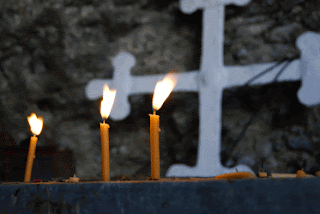Lead us, Evolution, lead us
Up the future's endless stair:
Chop us, change us, prod us, weed us.
For stagnation is despair:
Groping, guessing, yet progressing,
Lead us nobody knows where.
To whatever variation
Our posterity may turn
Hairy, squashy, or crustacian,
Bulbous-eyed or square of stern,
Tusked or toothless, mild or ruthless,
Towards that unknown god we yearn.
Ask not if it's god or devil,
Brethren, lest your words imply
Static norms of good and evil
(As in Plato) throned on high;
Such scholastic, inelastic,
Abstract yardsticks we deny.
On then! Value means survival-
Value. If our progeny
Spreads and spawns and licks each rival,
That will prove its deity
(Far from pleasant, by our present
Standards, though it well may be).1
C. S. Lewis
"Evolutionary Hymn"
1. C. S. Lewis, Poems [Harvest/HBJ; 1977] pp. 55-56







